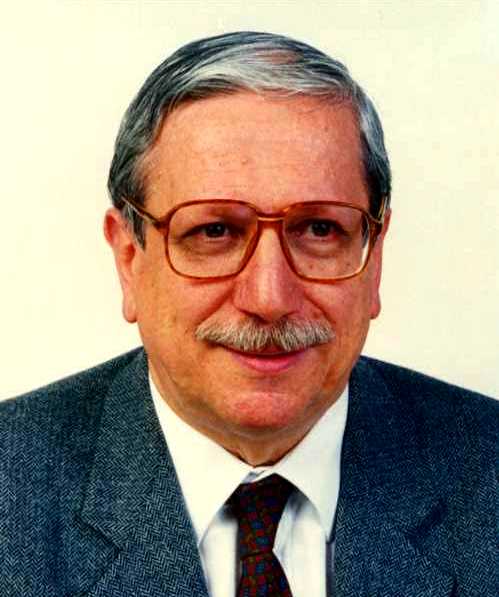 aaGuido O. Guardabassi:
Curriculum vitae et studiorum
aaGuido O. Guardabassi:
Curriculum vitae et studiorum
Guido Guardabassi was born on February 12,
His
research activity is documented by more than 50 papers in international
journals and a significantly larger number of conference papers, chapters in
scientific monographs, or articles in professional encyclopedias. The topics
dealt with, fall in four main areas: 1) discrete complex systems (robust
regulation of finite automata by output feedback, decomposition and asymptotic
analysis of Markov chains, composite problem analysis as a unified framework
for a variety of large-scale systems issues), 2) linear multivariable
control (structural uncontrollability of the sensitivity coefficients,
robust asymptotic decentralized regulation under uncertainty, and optimal
tuning of the regulator parameters), 3) optimal periodic control (P-test for periodic regimes
better than the optimal constant one), and 4) direct data-based control
systems design, i.e. nicely-nonlinear modelling
and control (identification of models tangent to a nonlinear plant at the
nominal equilibrium and properly linearizable by
output feedback) and virtual input methods, by which the controller
design is recast as a standard identification problem. On the professional
side, he has been dealing with a number of applications involving modelling, simulation, and control of power systems
(damping of electro-mechanical oscillations by advanced voltage control),
chemical (nonlinear dynamics of high-purity distillation columns) or thermal
plants (high-precision temperature control in a radiators test chamber).
For short
periods (1¸4 months), he
worked and lectured in foreign Universities or Research Institutions: Stanford
(1969),
He served
for two years as Chairman of the Standing Committee for International Affairs
of the IEEE Control Systems Society and is a Fellow of IEEE. Within IFAC, he partecipated in the activity of the Systems Engineering
Committee (SECOM) as member (1976), Vice-Chairman (1978-81) and Chairman
(1981-84). In 1980, he was one of the founders and the first Chairman of the
SECOM W.G. on Computer-Aided System Analysis and Design. He served on the IPC
of many IFAC events as member, Vice-Chairman or Chairman. He also chaired the
Young Author Prize Committee for the 11th World Congress (
He is or
has been on the editorial board of three national (Alta Frequenza,